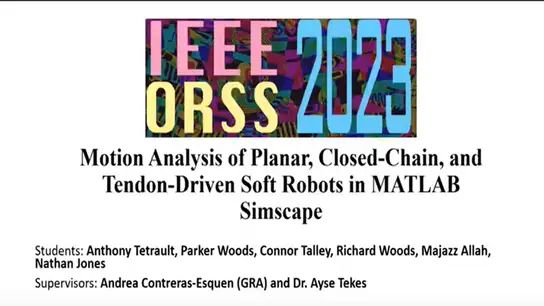Autonomous Navigation for Simulated Outdoor Environments
Shivani Mehrotra, Mohit Singh, Thien Dinh-Do, Nikhil Patel, Shiyu Feng, Patricio Vela
-
Members: FreeRFID
IEEE Members: $11.00
Non-members: $15.00Length: 00:12:21
27 Apr 2021
Improved precision in autonomous navigation is a research focal point in computer vision and mobile robotics, significantly impacting the advancement of industries such as autonomous vehicles, surgical technology, and industrial automation. Autonomous navigation techniques fall under two main categories: allocentric and egocentric spatial planning. In contrast to the allocentric approach, which involves the robot encoding information of the location of an object in relation to other objects, an egocentric approach involves the robot exploring its own relation to other objects and the environment. Egocentric approaches within autonomous navigation have been shown to yield more efficient pathfinding and minimize the distance traveled between two locations. Currently, there is significant testing and benchmarking in indoor environments for egocentric navigation approaches using egoTEB and PiPS collision checking. Our team presents an approach in simulation to benchmark egocentric navigation frameworks with various path planners in an outdoor environment, using GPS sensors to find ground truth. We develop a methodology to benchmark the egocentric algorithms via an Extended Kalman Filter utilizing 2 GPS sensors and an Odometry Sensor. In general, implementing testing strategies in an indoor environment is the standard, leaving these path-planning algorithms unproven in the outdoors. The additional data from evaluating navigation testing strategies in outdoor environments allows for the evaluation of the shortcomings and successes of the algorithms in unique, previously untested conditions. Additionally, there are many potential applications for outdoor autonomous navigation, such as in rugged terrain vehicles, in which ground truth and outdoor testing over long distances would be extremely valuable.


